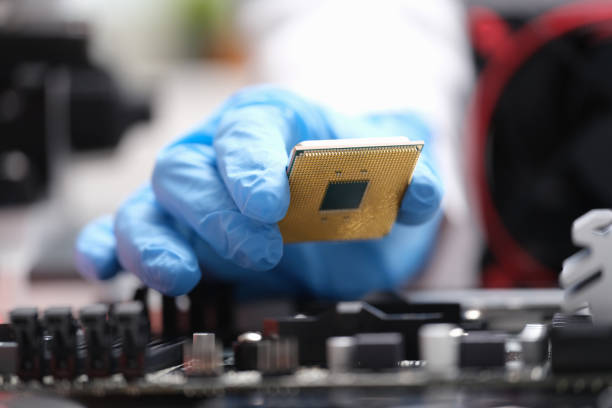
The worldwide semiconductor shortage could result in 7.7 million fewer vehicles manufactured by 2021, which will cost car manufacturers billions of dollars in sales, according to the consulting firm AlixPartners.
This forecast was made public in September. Twenty-three estimates that the issue will cause the auto industry to lose $210 billion in revenue in 2021. This is from May’s projections of $110 billion in lost revenues and 3.9 million fewer cars built.
“Everyone had hoped that the chip crisis would have abated more by now, but unfortunate events such as the COVID-19 lockdowns in Malaysia and continued problems elsewhere have exacerbated things,” Mark Wakefield, who is the global co-leader of AlixPartners’ industrial and automotive practice of AlixPartners stated in an email.
Wakefield said that the problem with semiconductors is only one of the problems that automakers face on the supply side, as shortages extend to materials like steel, resin, and labor.
“There are no “shock absorbers’ in the market today in terms of production or the ability to obtain materials,” Dan Hearsch, the managing director of AlixPartners industrial and automotive practice, said in an announcement. “Virtually any shortage or production interruption in any part of the world affects companies around the globe, and the impacts are now amplified due to all the other shortages.”
The forecast was updated the same week Secretary of Commerce Gina Raimondo and White House economic advisor Brian Deese hosted a semiconductor supply chain conference in Washington in September. 23. The attendees at the event, which included consumers, producers, and industrial groups — discussed how to address the worldwide semiconductor shortage and the effect of the epidemic on the supply chain of semiconductors.
Automobiles have depended more on semiconductors for various safety features, such as airbag deployment, emergency braking, and assistance, to computerized control of engines to improve efficiency and fuel economy.
COVID-19’s spread, the illness caused by the CCP (Chinese Communist Party) virus, has slowed down semiconductor production, and automakers are facing stiff competition from the booming consumer electronics industry in the quest for a smaller supply of chips. The shortage is causing reductions in production by automakers all over the world.
General Motors said several weeks back that it was reducing manufacturing at Six North American assembly plants due to the shortage of chip materials; Chrysler parent Stellantis NV said last week it would cut production at three factories in Canada, the United States, and Canada. In addition, Ford revealed in the last week of August that it was going to temporarily stop production at its Kansas City assembly plant, which produces its most popular F-150 pickup truck.
The lack of parts caused Toyota to reduce production by 40% at manufacturing factories in Japan and as much as 60% in North America. At the same time, German automaker Volkswagen announced in August that it might be forced to reduce production later in the autumn.
GM Chairman Mark Reuss said on Sept. 21 that he anticipates the supply of semiconductors worldwide to increase, though at a lower rate than automakers must rebuild their stocks.
“We’re going to see a stabilization to some extent before we see getting the volume that we really need,” Reuss told the Detroit Regional Chamber in Michigan conference.
“We’ve got an inventory hole that then got exacerbated by the chip shortage,” Reuss commented, referring to the impact of the pandemic on the automobile industry.
Although the United States indeed remains the leading global player in chip design, most foundries for semiconductors, as well as assembly and test facilities, are located in Asia.
Washington has acknowledged the dangers of the supply chain for foreign semiconductors dependence. Washington has recognized the vulnerability of foreign semiconductor supply chain reliance, with Raimondo declaring the absence of production of chips inside the United States a “national security risk.”
President Joe Biden has called for more investment to revive U.S. chip manufacturing, and both parties on Capitol Hill have sought to strengthen the supply chains of domestic semiconductors by encouraging manufacture within the United States.
By Tom Ozimek
Tom Ozimek has broad experience in journalism, deposit insurance, communications, marketing, and adult education. The most effective writing advice he’s received comes from Roy Peter Clark: ‘Hit your mark’ and leave the top to the last.’





